
The Branch of Jesse and the Vine
Sarah’s Sermon at Etowah United Methodist Church, Etowah, NC
December 31st, 2023
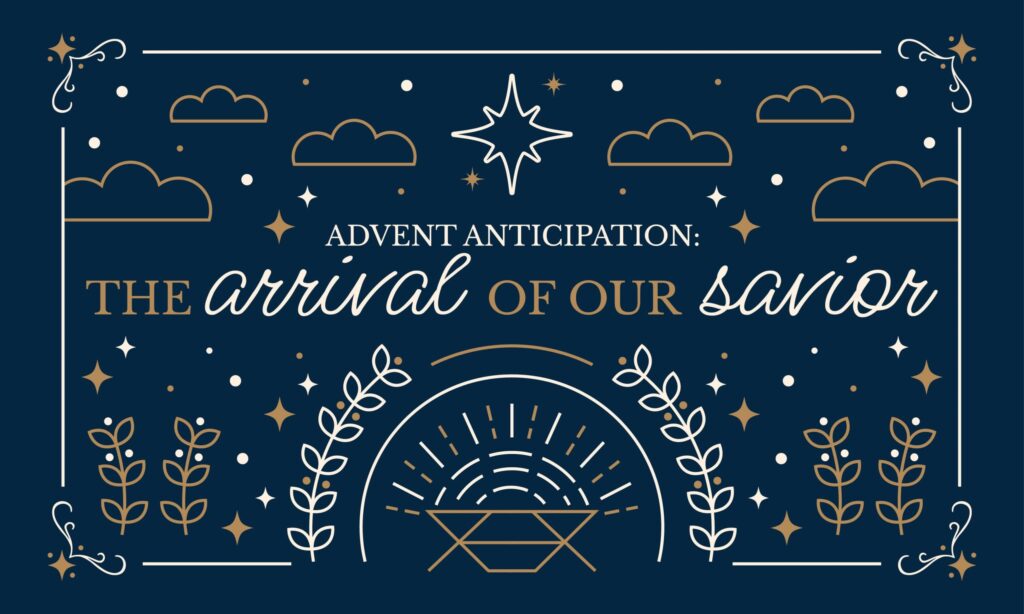
Advent is the season of waiting and anticipation.
Christmas is the dawn breaking into the deep darkness, a light dawning, and our long awaited hope fully becomes realized in the face of a baby lying in a humble manger.
Our Savior, our Emmanuel, has come. God is with us, Jesus now dwells with us, and the Holy Spirit was given to us to make our bodies a temple in which He dwells.
This season, we reflected on how Christ dwells with us, came for us, and remains in us; but, I do not think we often reflect on how we must respond to this truth with our lives as often as we should. I do not think we ask ourselves how we can, in response, abide in Christ as He abides in us. How do we not just know of what Christ did for us, but how do we also participate in what He did, and live it out daily?

Have we accidentally relegated Jesus’ birth into a heartfelt story about how redemption casually entered the world on a dark night with our midnight candles raised and limited it to Christmas, rather than a daily proclamation of God’s goodness?
Have we accidentally relegated Jesus’ death and resurrection to Easter news, rather than morning opportunities for transformation and communion?
Have we forgotten that people still die and will die just to hear the Gospel or read pieces of the pages of our Bibles around the world, yet we get to access the holy words of God whenever we want without judgment or persecution?
Have we forgotten the radical nature of our Savior’s entrance and normalized it to our rhythms, rather than transforming ourselves and conforming to the rhythm and movement of our Holy God?
We too easily forget that this is the truth, not just a truth we have subscribed to for our lives to be better. Jesus is the Way, the Truth, and the Life. We have too easily forgotten the sacrifice following Christ demands and watered down our pursuit of Him to when it is most convenient or easy.
Zechariah 3:10 tells us that ” ‘In that day each of you will invite your neighbor to sit under your vine and fig tree,’ declares the Lord Almighty.”
!Vine Artwork by Mary Walchuk)

How do we not only live lives with the knowledge that Christ is with us always, but also choose to remain in Christ, depend on Christ, and lean on Christ daily? Knowledge of God is not enough, but true intimacy with God is – and that can only be found in the consistent practice of abiding in the Spirit.
How do we move from a season of focusing on God being with us and Christ being in us to a season of us becoming a people that are in Christ and with God in His Kingdom?
How do we become a people that not only preaches what Christ did for us, but testifies to what Christ is doing now in us because of our present relationship with Him?

In Isaiah 11:1-3, Isaiah prophesies:
“A shoot will come up from the stump of Jesse; from his roots a Branch will bear fruit.
The Spirit of the LORD will rest on him—
the Spirit of wisdom and of understanding,
the Spirit of counsel and of might,
the Spirit of the knowledge and fear of the LORD—
and he will delight in the fear of the LORD.”
We preach of the Branch, but fail to focus on the Vine. We desire for the shoot, but deny the roots. We long for new life, but ignore the death whose ashes set the foundation for the resurrection.
Why did we need a Messiah? Why did Christ, our Emmanuel, need to come and show us what a life fully obedient to God and His Law looks like, what fruit it bears, what the fear of the Lord actually is in practice?
Jesus is the one who stood before John the Baptist, was baptized, and was publicly anointed by the Holy Spirit, immediately fulfilling the prophecy in Isaiah 11. Jesus was the one whose ancestral roots reached back to Jesse and King David, the one who the Spirit of the Lord rested, the one who received wisdom and understanding, counsel and might, knowledge and fear of the Lord through the Spirit – and delighted in it.
Jesus is the one who received the fruits of perfect obedience, and delighted in the Law, delighted in God’s statutes, and delighted in serving Him in every way possible.
Healing the sick? He compassionately did so.
Curing the blind, the mute, or the deaf? He did so willingly.
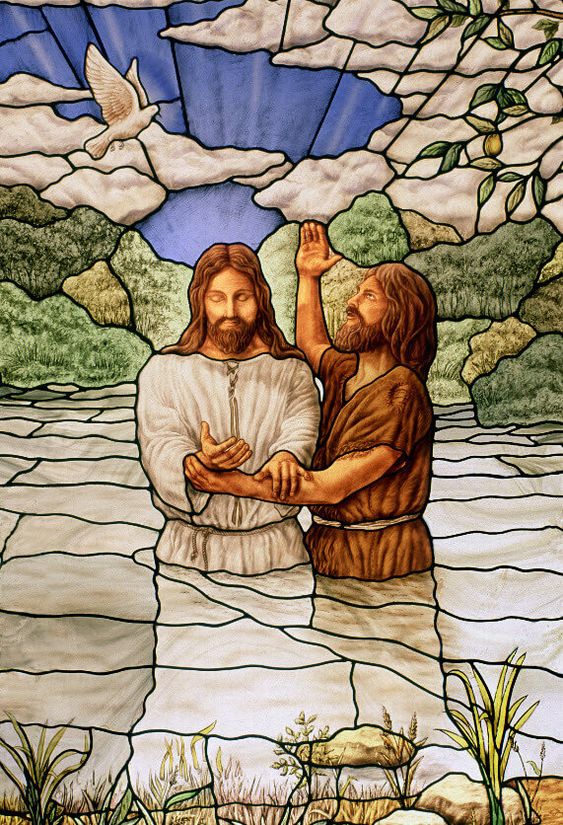
Liberating the captives? He did so freely.
Transforming sinners? He invited them daily.
Living with broken people? He enthusiastically pursued them regularly.
In terms of fruit, Jesus had a full basket of the Spirit, and was constantly providing for others out of His abundance and compassion. We are given the same invitation and calling – to bear good fruit in Christ, as Christ does in the Father.
So what does it mean to bear “good fruit”?
It means that when people look at us, our actions, how we speak, and how we love, they see visible evidence of God’s heart for His people. It means we are acting in step with God’s heart, mind, and will, and people long to know Him because of how He is working through us and in us.
However, I think we sometimes confuse good fruit with being a “good” person.
I remember back when I was in school studying for an exam, I wished I could just rest my forehead on my textbook and just absorb all the information for the test through the process of osmosis. I think we all have wished for that at one point in our lives. That just by being next to the textbook, the information would just magically enter my brain without needing to actually study the material. The money would just magically appear in my bank account without having to do the work. The food would just magically appear on my plate without having to make it.
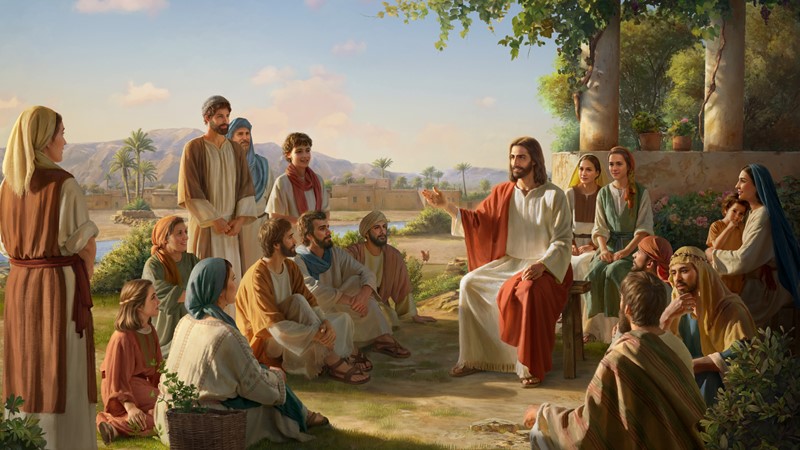
Honestly, life would be a lot easier that way; but, it would also be a lot less satisfying. We often make the mistake of believing that our mere proximity to our goal is the same as achieving our goal. And as in our relationship with Christ, we can make the mistake of thinking our proximity to Jesus through His church is enough to save us, rather than consistently pursuing Him, obeying Him, and studying His words. However, as in Matthew 7:21, our proximity to Jesus doesn’t denote our intimacy with Jesus.

When we serve Christ and allow the Holy Spirit to work through us in power and truth, and our testimony of God’s goodness is heard by those around us, we can trust that proximity to the Holy Spirit always beckons the invitation for transformation and resurrection; but just like with an RSVP to a party, we cannot simply receive the invitation, we also must respond to it.
Bearing good fruit is not simply being kind, forgiving, loving, or tolerant. It is not simply holding the door open for someone, serving food to the hungry, or giving clothes to the needy. It is not simply loving your neighbor, repairing burned bridges, or healing the sick.
All these things are evidence of the good fruit that developed in us by following Christ; and, by our witness of what the Holy Spirit has done in us, it can also produce good fruit in others. Our actions themselves are simply the savory and the sweet experience of the fruit Christ has grown in us over time. Good fruit is not found in our actions alone, but our motives, our intentions, our why we do the things and believe the things we do.
What produces good fruit, and is good fruit, is the Holy Spirit through the fear of the Lord. We cannot bear good fruit by doing good things, but good things come forth from the good fruit the Holy Spirit has cultivated in us.
But what is the Fear of the Lord? It is a reverent respect and love for God, one that honors His character, loves His commandments, delights in His statutes, and longs for His presence. It is the breadth of knowledge that He is holy, the depth of knowledge that He is good and loving, the length of knowledge that He is ever-present, and the height of knowledge that He is sovereign.
If we truly have the fear of the Lord through the Holy Spirit, then we are willing to deny ourselves, pick up our crosses daily, and boldly follow the One whom we call Emmanuel, Wonderful Counselor, Mighty God, Everlasting Father, Prince of Peace.
To have the fear of the Lord recognizes that we cannot save ourselves by our own actions, our own goodness, our own efforts, nor our own strength. It is humility before the presence of God, recognizing that our sin has separated us, and the willingness to recognize our sin, call it out by name, repent of it, turn and be healed.
If we have the Holy Spirit, then we cannot have some of the fruit of the Spirit, but we must have all. We should be loving, joyful, peaceful, patient, kind, good, faithful, gentle, and be self-controlled. We may be weaker in some of these than others – like we may be impatient for this year to come to a close, and a new year to begin in a matter of hours – but we should still possess all of these attributes.

In a time where love has become self-focused, and is being described as synonymous with compromise, affirmation, validation, and self-esteem, may we not forget in John 15:13 that Jesus didn’t describe love as being peaceful or comfortable, but said that there is no greater love than for one to lay down one’s life for one’s friends. Jesus laid down His life for us so we could be liberated from our sins, so we are called to lay down our lives for God’s people, not seeking ourselves, but seeking Christ, and loving His people radically.
Let us not be people shouting Hosanna and waving palm branches, only to yell crucify Him when He no longer is aligned with our interests. May we be like the magi who saw the star and asked where the King of the Jews was, or the Shepherds who heeded the angels shouting “Glory to God in the Highest Heaven and on earth peace to those on whom His favor rests!” (Luke 2:14)
May we be so attuned to the Spirit, that we hear when God speaks, see when God moves, and go where God leads us.
When we look at our first scripture today from Zechariah, we encounter two promises.
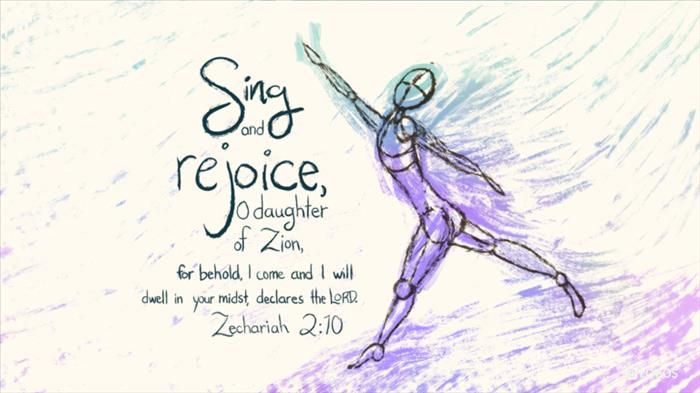
“Shout and be glad, Daughter Zion. For I am coming, and I will live among you,” declares the Lord.
Zechariah 2:10 NIV
In Zechariah 2:10-11, God tells Israel, and by extension us, to shout and be glad, for He is coming. We worship because He fulfilled this and came as Christ. We anticipate this still, because Jesus is coming again.
God says that many nations will be joined with the Lord in the day He comes, and will become His people. Jesus came first to the Jews, then to the Gentile; and, in Him all people were made one in Him through Jesus’ life, death, and resurrection. Many nations were made one under Christ.
In Zechariah 3:1-5, we encounter the Angel of the Lord – which some scholars will argue represents pre-incarnate Jesus because there is only one unnamed angel described as “the” angel of the Lord, while others are named or referred to as “an” angel. This angel of the Lord shows the prophet, Zechariah, a vision of their High Priest, Joshua son of Jozadak, and what Joshua’s leadership will symbolize.
Zechariah sees Joshua standing before the angel of the Lord in filthy clothes with Satan beside him ready to accuse him of his sin. Not only does the angel of the Lord rebuke Satan and his accusations, and describes Joshua as a burning stick snatched from the fire – which signifies he was saved and set apart; but, then the angel of the Lord instructs for Joshua’s filthy clothes to be removed and replaced with clean clothes. When this occurs, the angel of the Lord informs Joshua that he has taken away his sin.
Joshua’s clothes were not representative of the fact he forgot to wash his clothes before entering God’s presence, but rather that his sin made him filthy before God, and the Angel of the Lord cleansed him of his sin – which only God, Himself, can do. This same symbolic vision becomes a reality with Jesus’ life, death, and subsequent resurrection.
Our sin has made us filthy before God’s presence, and Satan is ready to accuse us; however, because of our relationship with Christ and His blood, we have been saved and set apart, our filthy clothes have been removed, and we have been cleansed of our sin.
In our Wednesday Bible Study here, one of our members found comfort in this passage, because he said that our sin was described as our clothing, rather than our identity. It can be easily removed by God, and it can be separated from who we are, because our identities are not found in our sin, but in God alone.
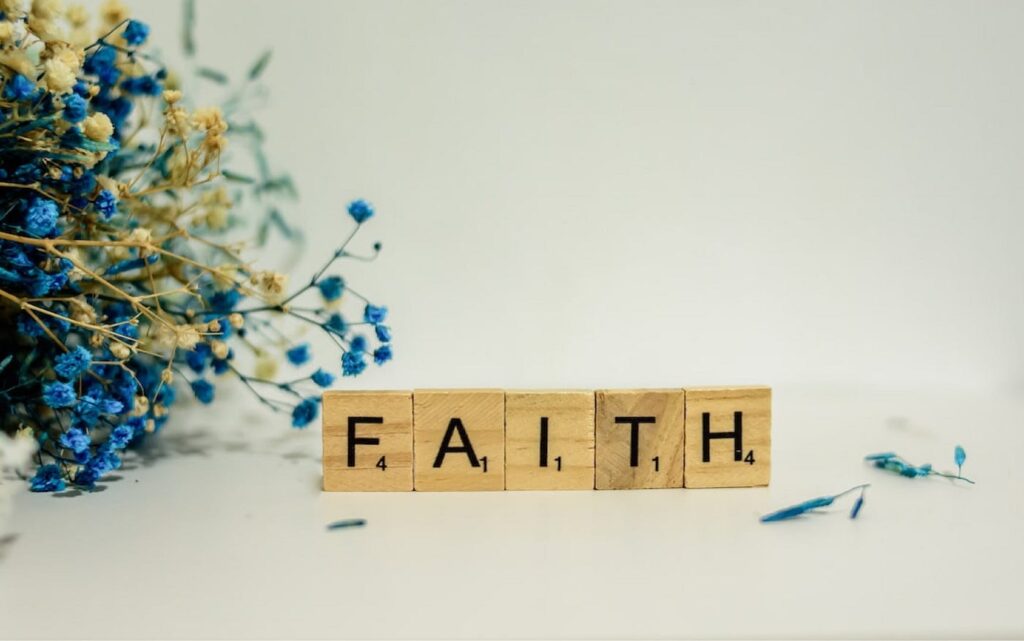
The vision continues with the Angel of the Lord providing Joshua with a simple command – “walk in obedience to me and keep my requirements”, and he informs him that he and his associates will be symbols of what God will do next.
That He will bring His servant, The Branch, and He will remove the sin of the entire land in a single day. He says that “on that day, each of you will invite your neighbor to sit under your vine and fig tree.”
Like Joshua, no matter how many “good” things we do, no matter how much we love people, serve people, and lay our lives down for others, we cannot outpace God’s love, God’s compassion, God’s forgiveness, or God’s goodness.
We cannot be “good enough” to prove ourselves worthy of salvation before God. Joshua was already a priest who served God well, and was being lifted up because of how he served God; by our definition, he was more than worthy of being saved because of how he lived his life – yet, before God, his clothes were described as filthy, and he had to be cleansed and have his sin forgiven by the Angel of the Lord so that he could be prepared to move forward.
This is why we need Jesus. As we enter this new year, we all want to believe the deceptions that if we try hard enough, we can perfect ourselves, save ourselves, and transform ourselves. We desperately want to be good, self-sufficient, and able to prove that we earned what we achieved.
The truth is – every one of us will go before Christ and realize our greatest achievements are filthy clothes before God, because His goodness, His greatness, and His salvation is truly better than anything we could have earned for ourselves. His self-sufficiency allows us to be dependent on Him, His goodness allows us to not lean into shame when we fail, and His ability to give us more than we could ever ask for or imagine allows us to dream bigger and see greater things.
We need Jesus. We don’t just need to know He arrived in humility and died in humility and rose in glory, but we need to participate in the meaning of His arrival, the depth of suffering related to how our sin that crucified Him, and the transformative joy that comes from His victorious resurrection.
It’s one thing to know He came, He died, and He rose; but, it’s another thing to live this truth out. There is a difference in knowing of the Branch, and abiding in the Vine.

So how can we not be so focused on the Branch that we forget our calling to abide in the Vine?
Jesus said He was the true vine, and He knows of those who claim His name that bear fruit and those that do not. He knows how to cut and prune, mend and flourish. He knows how to convict us so that we are more fruitful, and He knows when to cut things out of our life so that we flourish. His knife hurts regardless if you are cut off or pruned, but it matters more how we are cut than that we were cut. Sin cut us off long before God did. His knife is meant to graft us into His flourishing nature, not harm us.
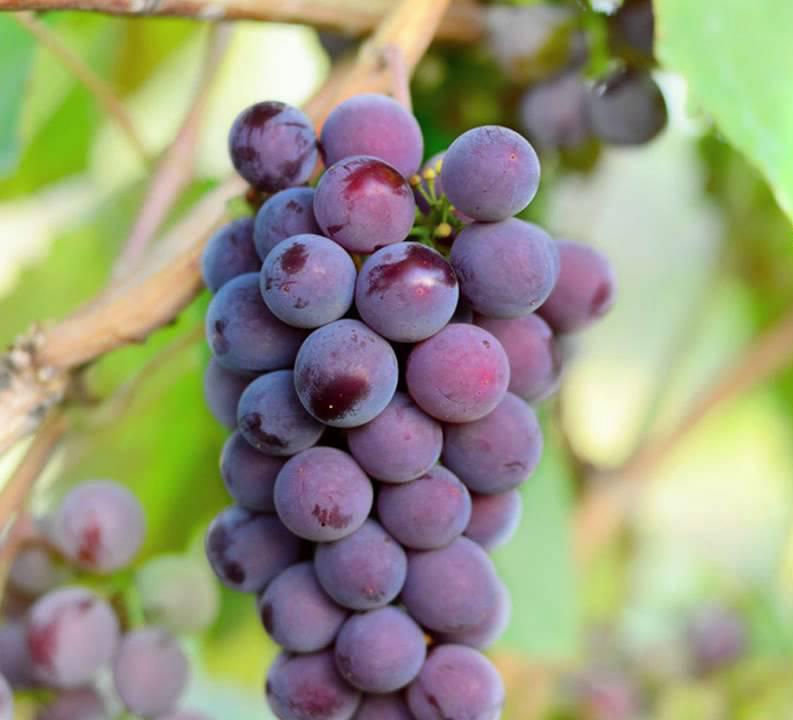
Jesus tells us in John 15 that no one can bear fruit by themselves, but they must remain in the Vine. We cannot be good enough or do enough to save ourselves, and we cannot bear good fruit without the One who is good. We must abide in the Vine, in the One called the Branch of Jesse, in the One who is more than able to provide for our every need.
We can trust that because He is good, and He is holy, and He would never sin against us, that every word He says is trustworthy and good, and worthy of obeying for our benefit and flourishing. When Jesus says that He is the true vine, He is not one that will fail to sustain us, one that gives false promises of provision only to fail to provide when it matters. He is not one that promises salvation only for us to find he was unable to save us all along.
He is the true vine, not a deceptive vine full of false promises. He is faithful to fulfill every promise, and none of His words come back void. Our only way to bear good fruit, our only way to be transformed, and the only way to have our sins forgiven is to seek and remain in the true vine, and Branch of Jesse, Jesus Christ.
In Israel, before Christ, they were told to remain separate from their neighbors, but to welcome them should their neighbors come to them. As followers of Christ, we are called to go directly to our neighbors, and without looking like the world around us, invite them to the transformation found only in the Truth of the Gospel.
Our neighbors should be able to look at our lives and see the value and transformation of the Gospel, because while the world bears fruit that is good in their own eyes, we are bearing fruit that is good in the way God is good. How we love and sacrifice ourselves to love like Christ will look counter-cultural, upside-down, and radical, and rarely will it be celebrated, but it will change people’s lives.
The same way the Gospel changed ours. The way the Gospel can change ours. The way the Gospel will change ours.
As we enter this new year, let us not preach of the Branch, but fail to remain in the Vine. Let us not seek the shoot, and forget the roots. Let us not long for the resurrection, but ignore our calling to die to ourselves.
Let us preach the arrival of the One called the Branch of Jesse, and abide in the Vine, and trust it to provide for all our needs. Let us prepare ourselves to see the shoot that bursts forth from the stump of Jesse, but honor the deep roots that God grew and uses to uphold the branches of every nation that comes to Him through Christ. Let us rejoice in our resurrection in response to seeing Christ’s death that forgave our fatal sins.
Let us rejoice not in shallow waters, but in seas with unknowable depths. Let us rejoice not in mere knowledge of the Holy Spirit, but in close intimacy with Him. Let us not seek ourselves or our own interests, but like Christ, delight in the fear of the Lord.
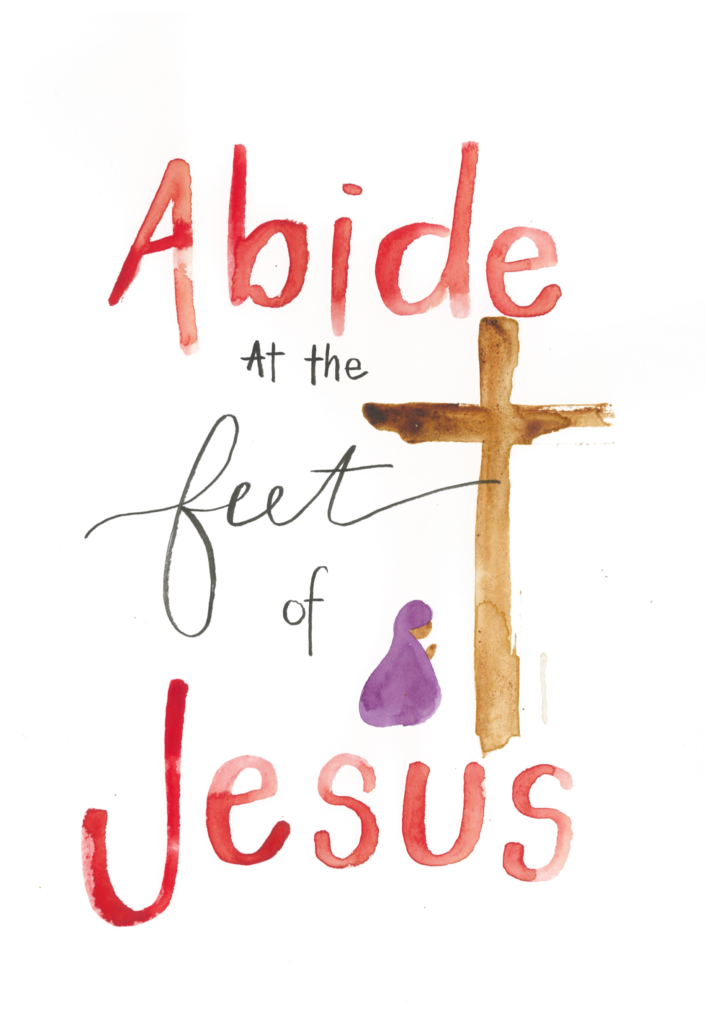
May we be more like Christ
May we become vessels that bear the good fruit of the Holy Spirit.
May we become vessels for the Spirit’s wisdom and understanding, not our own.
May we become vessels for the Spirit’s counsel and might, not our own.
May we become vessels for the Spirit’s knowledge and may we delight in the fear of the Lord.
May we, in this new year, come to know the True Vine and His goodness, so that we, in spirit and truth, may be fully equipped to bear good fruit for God’s glory, the love of our neighbors, and our good.
Amen.

